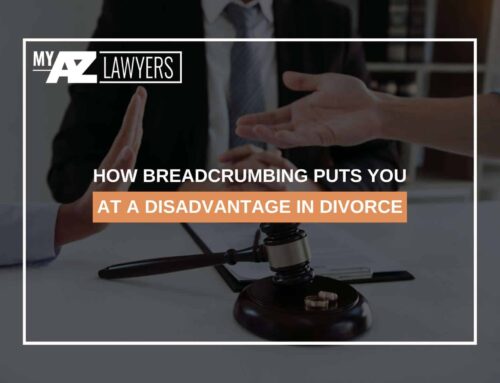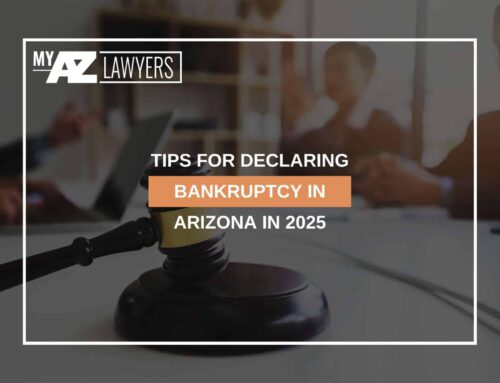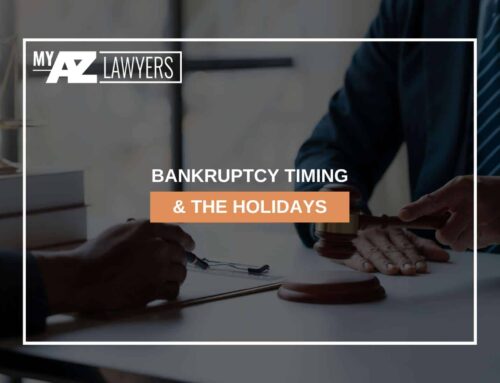Table Of Contents
Steps To Filing Bankruptcy On Credit Card Bills
Should I File For Bankruptcy For Credit Card Debt?
Unsurprisingly, credit card debt is one of the leading causes of bankruptcy in the United States. When your balance gets out of control, you may be pegged with interest and late fees that make it even harder to escape from debt. After a while, your creditors will eventually begin to pursue payment for your balance in arrears. You will know one of your creditors has filed a lawsuit against you once you receive a summons. At this point, you will have limited time to either argue against why you owe the creditor the demanded sum, or deal with your debt in some other way. Once your creditor obtains a judgment against you, they can use that to obtain a writ of garnishment for your wages. This allows your creditor to take 15-25% or more of your wages, directly from your paycheck. Whether your situation has progressed to a lawsuit or wage garnishment, you can use bankruptcy to protect yourself from your creditors and clear away credit card debt, so you can start fresh.

1. Check That You Qualify For Bankruptcy
The vast majority of Americans will choose between Chapter 7 and Chapter 13 when filing bankruptcy. There are special requirements for each, and you also must meet your state’s residency requirement to file. There are also mandatory waiting periods between bankruptcy filings- 8 years between Chapter 7 bankruptcies, which reduces if one or more of the chapters filed is a Chapter 13. Chapter 7 has income restrictions: you can only file if you make less than the state median income, or pass the Means Test. To qualify for Chapter 13, you must have sufficient income to pay off your mandatory debts. Schedule a consultation with a Phoenix bankruptcy attorney in your area to go over your bankruptcy qualifications.
2. Make Sure You Haven’t Exceeded Pre-Bankruptcy Credit Card Spending Limits
You can discharge thousands upon thousands of credit card debt in bankruptcy, so of course the courts have restrictions in place to prevent abuse. For example, there are limits to how much you can spend on your credit cards in the time frame leading up to your bankruptcy filing. This prevents debtors from maxing out all of their credit cards without any intention of ever repaying it, as they plan to soon file bankruptcy. In the 70 days before declaring bankruptcy, you may not exceed $1,000 in cash advances on your credit cards. In the 90 days before your bankruptcy, you may not spend more than $750 on luxury items on your credit cards.
3. Prepare Your Bankruptcy Petition
Your bankruptcy petition is meant to provide your trustee with a full and accurate representation of your financial situation. It will require several of your personal financial records to complete. For example, you will need several years of tax returns, leases and unexpired contracts, vehicle registrations, divorce and child support documents, and more. Clearly, it could take you a while to assemble all of these documents, so it’s best to start preparing as soon as possible. However, if you find yourself in an emergency situation, e.g., your vehicle is about to be repossessed or a wage garnishment is about to start, you may want to use a bankruptcy filing. You will only need six months’ worth of income information, as well as your identification forms and basic contact information, to complete an emergency bankruptcy petition. This will activate the Automatic Stay, which protects you from your creditors, and you will have 2 weeks to submit your full petition.
4. Complete Your Credit Counseling Courses
In addition to submitting a bankruptcy petition, you will also need to complete credit counseling to discharge your debts in bankruptcy. One of these courses will need to be completed before your petition is filed, and the second must be completed within 60 days of your 341 Meeting of Creditors. These courses can typically be completed online within 1-2 hours, and cost around $20-35. Your first credit counseling course certificate will be valid for 180 days, so you can take it in advance while preparing for your bankruptcy.
5. Confirm That All Of Your Creditors Are On Your Creditor Mailing Matrix
It’s vital that all of your creditors are included on your creditor mailing matrix, which will be filed alongside your bankruptcy petition. You don’t get to pick and choose which debts are discharged in your bankruptcy- you must list ALL of your creditors in your creditor mailing matrix. Your creditor mailing matrix will list all of your creditors, and should include their mailing addresses so they can be notified of your bankruptcy filing. If you fail to include any of your creditors, they may accidentally proceed with a wage garnishment, repossession, etc., while your bankruptcy is active due to your failure to notify them. Most of your creditors should be on your credit report, but certain types of debts, especially recent ones, have a chance of being absent.
6. File Your Bankruptcy Petition
If you retain a Chandler bankruptcy attorney, they will take care of this step for you. Otherwise, it will be your responsibility to file your bankruptcy petition, with all of its accompanying documents, with the bankruptcy court. You should receive a letter from your bankruptcy trustee in about 10-15 days. This will tell you your court date for your 341 Meeting of Creditors, and your trustee will likely request additional documents in support of your petition.
7. Debts Discharged: Be Careful With New Lines Of Credit
If you filed Chapter 13 bankruptcy, you will need to complete your payment plan to achieve discharge. If you filed Chapter 7, you will simply wait the 60 days after your 341 Meeting of Creditors (and completing your second credit counseling course) for your case to be eligible for discharge. Once your case has been discharged, you are no longer legally obligated to pay the debts discharged in your bankruptcy. You will likely be inundated with new credit offers shortly after discharge. While opening new credit cards can be a great way to rebuild your credit after bankruptcy, you should be cautious about the terms of all credit offers, and spend minimally and wisely.
Contact Our Phoenix Bankruptcy Attorneys With Additional Questions
Do you have more questions about discharging your credit card debt through bankruptcy? Our dedicated legal team is here to help. For more information about bankruptcy, and to see if you qualify, call (480) 833-8000 or use our online form today to schedule your free consultation. We also offer great rates and flexible payment plan options to help you afford getting started.
Arizona Offices:
Mesa Location:
1731 West Baseline Rd., Suite #100
Mesa, AZ 85202
Office: (480) 448-9800
Email: [email protected]
Website: https://myazlawyers.com/
Phoenix Location:
343 West Roosevelt, Suite #100
Phoenix, AZ 85003
Office: (602) 609-7000
Glendale Location:
20325 N 51st Avenue Suite #134, Building 5
Glendale, AZ 85308
Office: (602) 509-0955
Tucson Location:
2 East Congress St., Suite #900-6A
Tucson, AZ 85701
Office: (520) 441-1450
Avondale Location:
12725 W. Indian School Rd., Ste E, #101
Avondale, AZ 85392
Office: (623) 469-6603












